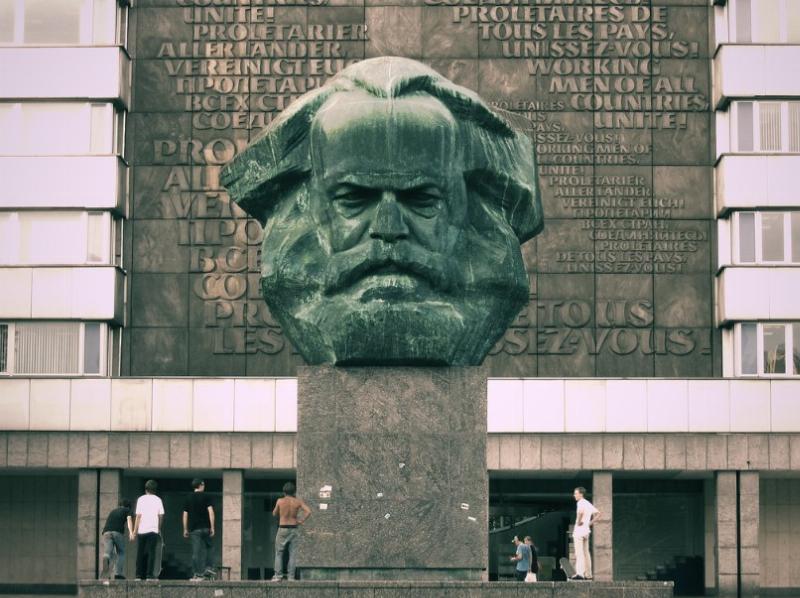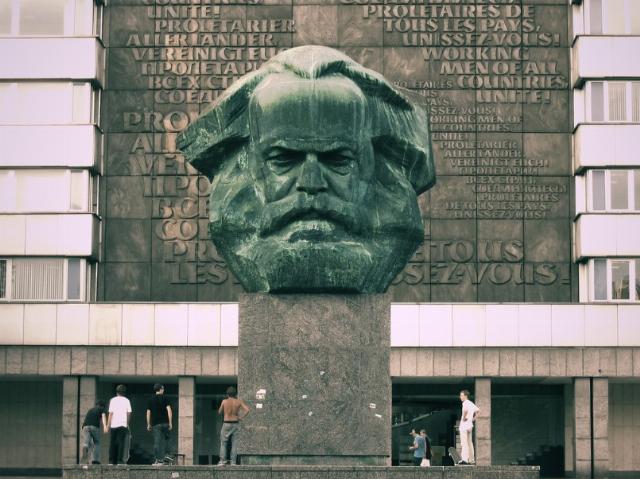


On Tuesday, June 24, Zohan Mamdani, a Democratic Socialist, won the Democrat party’s nomination for mayor of New York City. He received 432,000 first place votes, short of a majority, but sufficient to secure the nomination. Hardly the first socialist electoral victory in American politics — Senator Bernie Sanders of Vermont considers himself a socialist. Nevertheless, the specifics of Mamdani’s program, and his avowed anti-Isarael stance (calling to “globalize the intifada”), brought shockwaves. As a Wall Street Journal headline put it, “Wall Street Panics Over Prospect of a Socialist Running New York City.” Countless Jews, including major Democrat donors, are similarly worried, along with moderate Democrats fearing their party being pushed too far leftward.
This anti-Mamdani hysteria centers on his self-designation as a “socialist.” This labeling mischaracterizes his agenda. To be sure, Mayor Mamdani would be a disaster for the city, but though he may call himself a socialist, just verbally condemning capitalism does not make him one. Those alarmed over the term “socialist” are focused on the wrong target. A more accurate label would be a race-tinged “populist” or, more colloquially, closer to Santa Claus than Leon Trotsky.
Populism entails a redistribution of wealth to ordinary people — Robin Hood, not Karl Marx. Theoretically, populism and socialism share virtually nothing, and populism has long infused American politics — including Andrew Jackson, William Jennings Bryan, and Huey Long of Louisiana, none of whom considered themselves “socialists.”
Mamdani’s call for reducing income inequality does not, in and of itself, signify socialism. In fact, some conservatives favor reducing inequality. Making everyone rich by sharing the wealth — a chicken in every pot — would, at least in principle, satisfy populists like Mamdani, but redistribution would not necessarily create equality, since perfect equality would also exist if everyone were destitute. Primitive Stone Age societies are typically very equal. Nor, for that matter, are Mamdani’s plans the only crackpot economic scheme to have had drawn widespread voter support. (Examples include the widely popular Townsend Plan and Henry George’s Single Tax Plan.)
Demanding free child care, free buses, lavish subsidized health care, increased minimum wage, fighting crime with mental health intervention, reversing climate change with “green schools,” abolishing all private insurance, government-owned supermarkets, caps on rent, expanding “gender-affirming care,” and lower taxes on homes in black neighborhoods (among other handouts) are merely a grab bag of “free stuff” enticements and scarcely related to historically understood socialism. Taken together, Mamdani ’s laundry list agenda lacks any coherence beyond “free stuff.”
A genuine socialist, anti-capitalist ideologue would have made public ownership front and center, notably nationalization of all hospitals, schools, financial institutions, plus all transportation (including Uber), utilities and manufacturing, not just a few government-owned supermarkets in food deserts. A socialist government would also govern with massive non-elected bureaucracies authorized to set prices and dictate working conditions and nearly all other economic policies. Socialism is fundamentally about aggrandizing state power, public ownership of key industries, and a command economy. Mamdani’s free stuff rhetoric sidesteps these draconian measures.
Mamdani’s rise is best explained not by exploiting the lure of a socialism, but by how modern American elections facilitate turnout and thus encourage “free stuff” appeals. Those alarmed by his victory should be more concerned over America’s gullible electorate than the seductive power of socialism. Widespread naïveté, not Marxism, is what should alarm those fearing a People’s Republic of New York City.
Unfortunately, today’s campaigns quickly become contests in bribery. Few candidates can resist the “something for nothing” approach, and voting for a cornucopia of “free stuff” is not embracing socialism. Imagine an authentic socialist, who demanded government ownership of all banks, newspapers, TV stations, and housing, putting all doctors on the public payroll while giving unelected functionaries total power to set wages and working conditions.
This “real socialism” scenario is hardly hypothetical. Authentic socialist parties such as the Socialist Labor Party of America occasionally appear on the ballot but draw hardly any votes. (It last ran a candidate for president in 1976.) There is a long list of American Marxist/Socialist parties that have come and gone, none successful, and so it is bizarre to suggest that Mamdani’s sudden rise finally expressed the city’s long dormant craving for “socialism.”
Mamdani’s victory reflects his personality, savvy internet-based campaigning targeting young people, and an ability to press the right pandering buttons. This is particularly true for seducing young, better-educated New Yorkers, who struggle with high rents and uncertain job prospects. Perhaps universities play a role here by graduating those unsuited to the capitalist marketplace.
In principle, Mamdani’s promise of cracking down on “bad landlords” is not at all different from President Trump’s promise of no tax on tips and overtime. Both are ill informed pandering — Trump ignores how ending these taxes without reducing government spending may force tax increases elsewhere, while Mamdani wants only saintly landlords. Blaming “socialism” for the “free stuff” mania is thus the wrong diagnosis, and banning this ideology from public life would not eliminate Mamdani-like pandering.
Ironically, although Mamdani’s embrace of free stuff “socialism” may appear as a novel threat to American politics, the Founders would have predicted his appearance. From their study of failed democracies, they knew how “rule of the people” invariably deteriorates into mob rule (“majority tyranny”) and how governments soon overspend themselves into bankruptcy. They also understood that the voracious appetite for “free stuff” is human nature, and since human nature could not be altered, government itself must be designed to impede demagogues. The Constitution thus abounds with mechanisms to thwart rapacious appetites: the Electoral College, federalism, checks and balances within the national government, staggered elections, an independent Judiciary, and more. The Founders sought to design a Mamdani-proof government.
What has subverted the Founders’ efforts to prevent the “free stuff” mania is the current willingness to open the door as wide as possible for the hoi polloi to vote. That is, since “democracy” became defined by more generous access to the ballot, promoting “democracy” became expanding the franchise. America has thus gone from admitting only those white males owning land to white males owning sufficient property or paying a certain level of taxes, then only to literate white males, then to include black Americans and women, and eventually to almost any citizen over eighteen. Now even an illiterate unable to speak a word of English or capable of grasping the most basic economic argument can vote. And the push continues with calls to enfranchise non-citizens, ex-felons, and even sixteen-year-olds.
Short of radically re-shaping the electorate, the lure of pandering cannot be eliminated. Good luck requiring prospective voters to demonstrate basic economic literacy or prove that they are taxpayers willing to pay for all the freebies. The threat of irresponsible mob rule is likely permanent thanks to our highly inclusive election system. Mamdani is a genuine threat to NYC, but raging against “socialism” hardly cures the problem.

